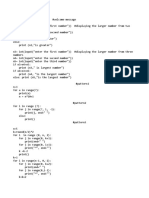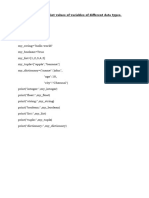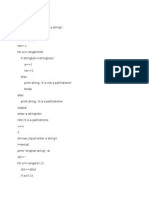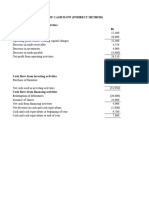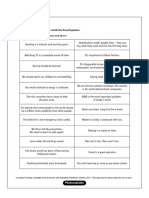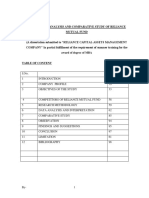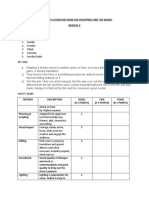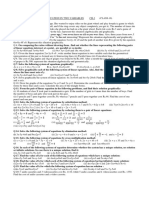0% found this document useful (0 votes)
69 views13 pagesPython Program List
The document contains a list of Python programming exercises along with their corresponding solutions. It covers various topics such as finding the smallest number, checking for Armstrong and palindrome numbers, calculating the roots of quadratic equations, and validating mobile numbers and emails. Additionally, it includes tasks related to string manipulation, arithmetic operations, and data handling using pandas.
Uploaded by
frozentomato70Copyright
© © All Rights Reserved
We take content rights seriously. If you suspect this is your content, claim it here.
Available Formats
Download as PDF, TXT or read online on Scribd
0% found this document useful (0 votes)
69 views13 pagesPython Program List
The document contains a list of Python programming exercises along with their corresponding solutions. It covers various topics such as finding the smallest number, checking for Armstrong and palindrome numbers, calculating the roots of quadratic equations, and validating mobile numbers and emails. Additionally, it includes tasks related to string manipulation, arithmetic operations, and data handling using pandas.
Uploaded by
frozentomato70Copyright
© © All Rights Reserved
We take content rights seriously. If you suspect this is your content, claim it here.
Available Formats
Download as PDF, TXT or read online on Scribd
/ 13












